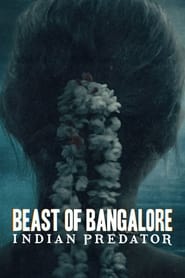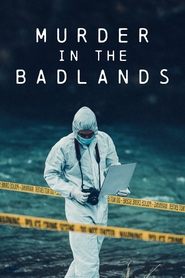Crime TV Series - Page 300
-
Hacı
2006
Hacı
2006
-
Дом Надежды
2018
-
新警事之隐形兄弟
2010
新警事之隐形兄弟
2010
-
Suspectes
2007
-
誓言无声
2002
誓言无声
2002
-
Schneekind - Ein Schwarzwaldkrimi
2024
star 6.5A hiker is found dead in a remote forest that is popularly known as the "Murder Hole". Opposite the victim is a melting snowman with one eye missing. The start of a series of murders in the forest area near Freudenstadt. The handwriting is always the same: all victims show frostbite, while the left eye is covered with a black gem. The investigative team Maris Bächle and Konrad Diener has Florentin Sneelin in its sights, a reproductive doctor who lives in a romantic moated castle whose ice cellar not only stores champagne. The suspect knew the victims from a stay in a children's home many years ago. The teachers there enforced discipline and order using sometimes sadistic methods. Their wards did the same. There was a strict caste system among the children. Sneelin belonged to the lowest caste. He was a so called "Snow Child", one that his mother wanted "to foist" on his father. -
Lost
2013
Lost
2013
star 6.5A young boy Karim suddenly gets kidnapped by falko his dad's unknown enemy in order to get even with his dad for snatching his girlfriend away from him. -
Nettaiya
1983
Nettaiya
1983
It is a hot and humid summer in Tokyo. Eiji (Yusaku Matsuda), armed with a modified gun, breaks into a salaryman's finance company in Shinjuku and makes off with nearly 40 million yen and Sachiko (Kaori Momoi), the receptionist. The two, a young man from the countryside with a perverse personality and an unattractive office worker, plan a fugitive journey without a guilty conscience with a large sum of money in their hands. -
People Magazine Investigates: Cults
2018
star 7People Magazine explores shocking stories of ordinary people who, lured by promises of eternal life, get caught up in a terrifying web of abuse, deception, and manipulation. Explore the deeply disturbing world of cults through the eyes of survivors who managed to escape. -
Beast of Bangalore: Indian Predator
2022
star 5.8A teetering police force goes on a wild pursuit of a vicious and brutal killer of women who is gripping a state. -
Dokument inifrån: Det svenska styckmordet
2024
40 years ago, a woman was found dismembered under a highway in Stockholm. It was the beginning of what would become Sweden's strangest and most controversial legal process: the Catrine da Costa case. The two doctors Teet Härm and Thomas Allgén were identified as guilty of the dismemberment. But how did the legal system actually come to the conclusion that they were guilty? -
Kuruthi Kalam
2021
Kuruthi Kalam
2021
Two rival gangs with a history of violence rule the roost in Chennai. An upright youngster, Vijay, is pulled into their never-ending power play and has to give up his hopes of becoming a police officer when he resorts to violence. -
Mirage
1983
Mirage
1983
star 6.5Tragic events in the lives of five people after they have stolen a car with one million dollars in the safe. This is the job they have all been waiting for. The job that will set them up for life. A million dollars split five ways, who wouldn't be interested? The only catch is that it's the very definition of impossible...or is it? Armed with a brilliant plan, the four men and one woman think they can crack it. But as tensions in the group begin to mount and things start to go wrong, the million dollars feels more out of reach than ever. Even though it is right with them... -
Murder in the Badlands
2022
star 6Examines the stories behind the unsolved murders of four women across four decades in Northern Ireland. -
Shattered Hearts
2022
Shattered Hearts
2022
American TV host, model and social activist Ananda Lewis looks at doomed love triangles, controlling relationships and dangerous romantic obsessions that end in murder. -
Crooks Don't Win
1989
-
A Fleeing Woman
2016
-
Formula of the Crime
2022
Formula of the Crime
2022
star 4.71895, St. Petersburg. Anastasia Ardashnikova, one of the first women to receive a diploma from the Sorbonne Faculty of Law, returns from France to her homeland. Anastasia has extensive knowledge of advanced investigative techniques that are practically unknown in Russia and is full of hopes to become a criminologist. Not everyone understands her professional fervor. Anastasia's entourage is confident that she is engaged in an unusual business for a woman, and the first experience of a collision with the Russian detective police in the person of bailiff Taras Smolokurov reveals how far Anastasia is from domestic realities. -
Pure Love
2017
Pure Love
2017
Series follow a complicated love story in which main characters' love comes to a test because of Sonja's life dilemmas. -
Shadow
2021



















